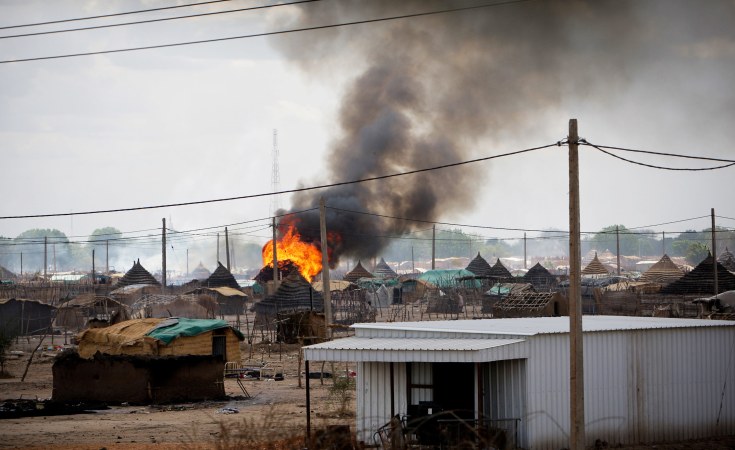Efforts are underway to develop a new security plan for Sudan's disputed Abyei region that would include the withdrawal of northern and southern Sudanese troops and the boosting of United Nations forces to help defuse tensions there, a senior U.S. diplomat said Tuesday.
The U.S. special envoy to Sudan, Princeton Lyman, said diplomatic efforts by former South African president Thabo Mbeki in recent days had been "extremely important" to these planning efforts. Mbeki has met separately with Sudanese President Omar al-Bashir and the leader of South Sudan, Vice President Salva Kiir.
"The plan is to strengthen the Unmis (United Nations Mission in Sudan) forces, either with new units or additional units, so they are better able to monitor and verify agreements on withdrawal of forces from both sides," Lyman told AllAfrica on Tuesday.
He was referring to troops from both the northern army, known as the Sudan Armed Forces (SAF), and the Sudanese People's Liberation Army (SPLA) from the south. Both sides are barred from having separate forces in Abyei under the 2005 Comprehensive Peace Agreement (CPA) that ended decades of war between the north and south. The agreement created a Joint Integrated Unit comprising selected soldiers from both the SAF and the SPLA to maintain peace and security. A referendum to determine the region's status, another provision of the CPA, has been repeatedly postponed.
Lyman said the new security arrangement for Abyei would have to be agreed upon by all parties, including Bashir, Kiir, the UN and the African Union. He said he did not yet know how many additional Unmis forces might be sent to Abyei, but he hoped that once the security arrangement was accepted by all parties that it would be implemented "within days, not weeks" and that the United States was in touch with the UN about how to accelerate the process.
Reports say up to 20,000 people have been displaced within Abyei since troops from northern Sudan entered the region. Looting has been reported in the town of Abyei and the UN is trying to send in additional peacekeepers to help put an end to it, Lyman said. Khartoum has been told, he said, that it must bring the looters under control. In addition, a UN compound in Abyei was hit by mortar fire.
The action by Khartoum's forces followed an attack last Thursday by troops from South Sudan and two days of aerial bombardment by the north. Lyman said the situation in Abyei posed a "serious, serious problem" for additional negotiations that Sudan and South Sudan are to undertake to meet further obligations under the CPA.
However, he said did not foresee the two sides going back to full-scale war. "I don't think either side wants to do so and both President Bashir and Vice President Kiir have said they don't want to go back to war even during this crisis," Lyman said.
"What's dangerous is they could be dragged into a conflict in a place like Abyei and that would create a pall over the rest of the negotiations that have to take place between now and July 9, and resolving the status of Abyei is a part of that."
South Sudan is slated to officially become a separate country on July 9, after having voted overwhelmingly for independence in a referendum last January.
Lyman emphasized U.S. concern over the failure of Bashir and Kiir to engage one another, saying the two leaders have not spoken for weeks.
"We're very disappointed that President Bashir and Vice President Kiir are not talking to each other," Lyman said. "We have urged strongly that they talk and meet. This is a big crisis and it's a culmination of the loss of that spirit of cooperation that we saw right after [the referendum]. They are the two that have to reestablish that atmosphere."


